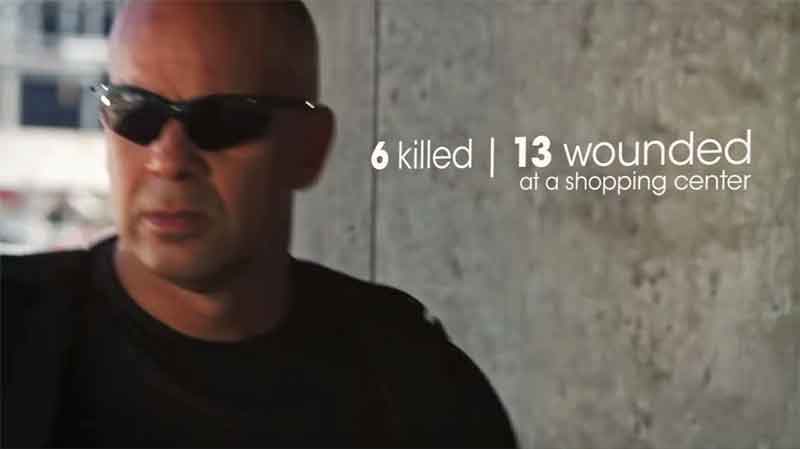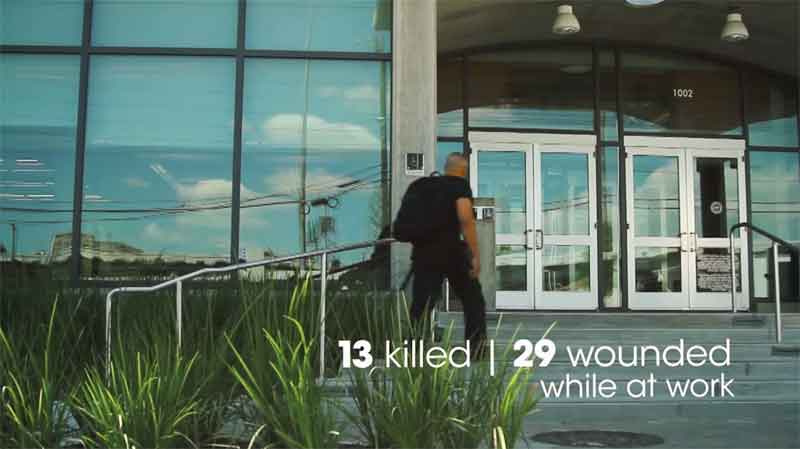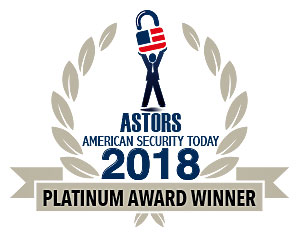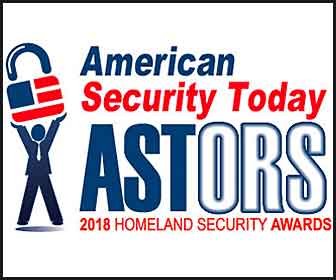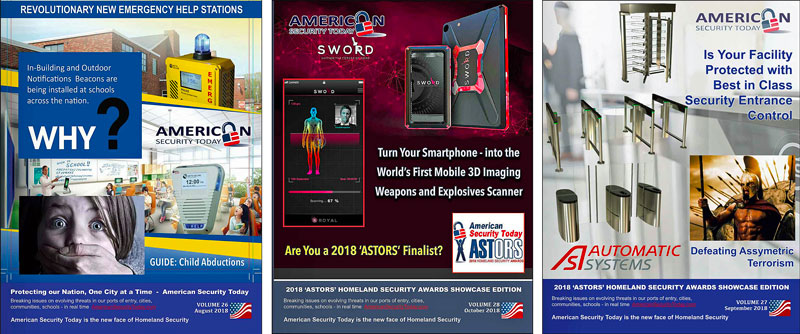
Today, terror attacks, active shooter incidents, natural and manmade critical and immediate threat incidents are at the top of everyone’s mind in America.
Hard pressed to make it through a day without media outlets describing graphic details of the most recent ‘active shooter’ or other emergency event, fear of these threats are real, pervasive and debilitating, leaving countless American’s encumbered by uncertainty and fear.
(A gunman opened fire in a shooting spree at Mercy Hospital and Medical Center in Chicago last week, leaving four people dead, including the suspect and a police officer. The rampage began with a confrontation in the parking lot before the shooter ran inside and exchanged gunfire with police. TODAY and YouTube. Posted on Nov 19, 2018.)
On average it takes 6-8 minutes for law enforcement to arrive on the scene and by then much of the damage has already been done.
Developing a preparedness mindset is a foundation for understanding what happens when an ordinary day turns into an extraordinary one, and identifies the decisions that need to be made, including what to do when law enforcement arrives.
Active threats can and do happen where we work, where we learn, where we worship, where we serve and where we play.
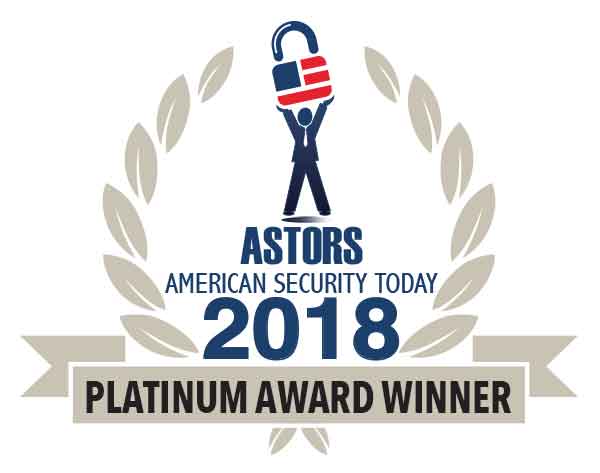 Active Threat Readiness (ATR) training educates, engages and empowers individuals to recognize threats, act without hesitation and replace fear with confidence.
Active Threat Readiness (ATR) training educates, engages and empowers individuals to recognize threats, act without hesitation and replace fear with confidence.
Kiernan Group Holdings, a Platinum Award Winner in the 2018 ‘ASTORS’ Homeland Security Awards Program for Best Homeland Security Education Program, believes that individuals are always the initial responders in a catastrophic event and can and should be better prepared to change the outcome – when an ordinary day turns into an extraordinary one.
GOT PREPAREDNESS?
Develop Skills in Awareness, Preparedness, Response and Recovery
Preparedness Without Paranoia®
KGH’s Preparedness Without Paranoia® approach provides education and training for individuals to gain a heightened situational awareness and understanding of today’s multidimensional threat environment, recognize telltale signs of an evolving threat, and become empowered to take effective action without hesitation.
By replacing confusion with clarity, KGH training prepares participants and organizations to mitigate the unseen costs of what has become a national crisis-immeasurable health, social, and economic consequences.
The approach is non-tactical by design.
It is complementary to the tactical concepts and operations employed by first responders. Those brave men and women who deliberately run towards danger not away.
The Preparedness Without Paranoia® approach prepares individuals for the spectrum of active threats faced in public and social environments and equips them with the confidence to Prepare, Respond, and Recover in these situations.
Kiernan Group Holdings
(Hear directly about the ‘Preparedness Without Paranoia’ Education and Training Series from Dr. Kathleen Kiernan, CEO & Founder of Kiernan Group Holdings. Dr. Kiernan, a 29-year veteran of Federal Law Enforcement, retiring as Assistant Director for the Office of Strategic Intelligence and Information for the ATF, developed PWP, an approach to individual engagement and education to increase confidence and decrease victimization in active threat environments. To Learn More, please visit https://www.gotpreparedness.comKGH. Courtesy of KGH and YouTube.)
KGH’s Preparedness Without Paranoia® approach fosters an educated, engaged, and resilient public.
Individuals will gain a heightened situational awareness to:
-
Understand today’s multidimensional threat environment,
-
Recognize telltale signs of an evolving threat,
-
Empower people to take effective action, and
-
Understand how to recover and resume one’s daily activities in an effective manner

“I developed Preparedness Without Paranoia (PWP) because violence is no longer a rarity nor confined to any type or place of business,” explains Dr. Kathleen Kiernan, Chief Executive Officer of Kiernan Group Holdings (KGH), and a 29 year veteran of federal law enforcement with the ATF.
Active threat incidents can happen anywhere, to anyone, at any time: where we work, where we serve, where we learn, where we worship, and even where we play, as evidenced by the grievous attacks in mass gathering venues where families go to relax and be entertained.
The second and third order effects on society are incalculable from a human suffering perspective, as families never fully heal.
From a socioeconomic perspective, the impacts on commerce resonate across the critical infrastructure community in terms of the hotel and travel industry, long-term health care, job loss and an undercurrent of uncertainty when making decisions on personal and corporate security.
Perspectives on security have shifted as the routine assumptions that a military base or other “hard target” would preclude the opportunity for an assailant to gain access, as we have painfully learned, is no longer viable.
Mitigating this evolving threat environment from a citizen/practitioner level through education on preparedness of both individuals and organizations is at the core of KGH’s business model.
KGH expects to see more hybrid-type attacks like those using vehicles that are re-purposed into weapons as well as a new hybrid warfare which employs multiple weapon systems to include a combination of physical and cyber-attacks.
Firearms, improvised explosive devices (IEDs) and knives have long been the weapons of choice for terrorists, but in what has become their latest warfare tactic motor vehicles are being weaponized as their instruments of attack against pedestrians.
While this tactic has long been used in conflict zones such as in the Middle East and elsewhere), it is relatively new in the West, including the United States.
During the 2016 – 2017 period, for example, in Western Europe, the United States, and Canada, based on a rough estimate, 12 of the 27 multiple-casualty terrorist attacks, in which two or more casualties were inflicted, have employed trucks, vans or cars that are intentionally driven into public crowds, sometimes over long stretches before the attacks are terminated, usually through crashes.
(On October 31, 2017, Islamist terrorist Sayfullo Saipov intentionally drove a rented pickup truck into cyclists and runners for one mile of the Hudson River Park‘s bike path in Lower Manhattan, in a vehicle-ramming attack the killed eight people, and injured eleven others. Courtesy of Fox News and YouTube. Posted on Oct 31, 2017.)
At times, the attackers’ violence continues when they flee their vehicles and inflict further damage on pedestrians, using hand-held weapons.
The KGH team continues to monitor, research, and analyze vehicle ramming and other emerging hybrid scenarios and platforms to identify the adversarial technology adaptation cycle.
Understanding the tactics, techniques and procedures (TTP’s) used by active assailants results in state of practice training and services for our clients.
Often, the means to an attack include the adversarial exploitation of routine behavior and process when expectations of threats are low, for instance, attending an open-air event or riding a bicycle on a city street.
“These are precisely the kinds of threats that are often hidden in plain sight, invisible to the untrained eye,” says Dr. Kiernan.
“KGH specializes in training individuals and organizations on how to identify these hidden threats and what to do when they are identified.”
“When individuals are prepared, they are also confident and capable of responding quickly and appropriately; if they have planned, practiced and, most importantly, accepted the fact that violence can occur anywhere, they will know how to respond,” says Dr. Kiernan.
She added: “I like to think of it as seeing with one’s ears, and hearing with one’s eyes, a variation on sensory perceptions which can refine cognitive abilities and identify early indicators of anomalous behavior.”
Three types of attacks which repurpose vehicles as weapons:
-
Type 1 – the vehicles are intentionally driven into public crowds to cause as many casualties as possible
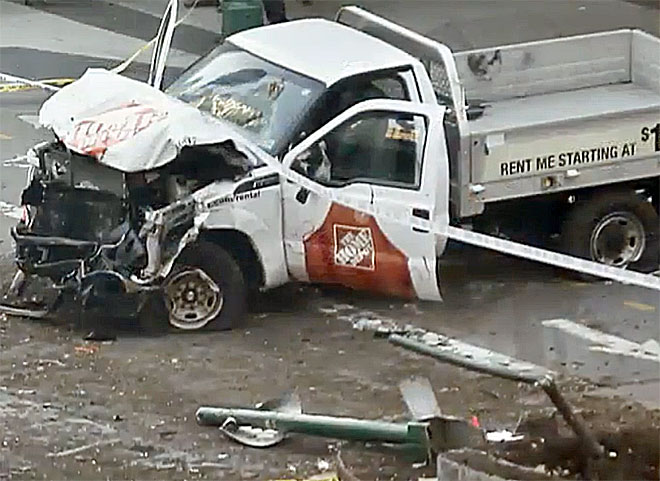
-
Type 2 – the vehicles ram into crowds and the driver gets out and uses hand-held weapons to attack bystanders and first responders, and
-
Type 3 – the vehicles are used to breach a hardened target’s security to conduct a further attack within its compound
“Security is now a personal responsibility” explains Dr. Kiernan.
“Security sense is really just common sense.”
“Everyone, from the kitchen table to the boardroom table should take the opportunity to learn about techniques that can enhance their situational awareness and preparedness” and employ these skills regularly.”
“As kids, we all learned security lessons about danger, danger from passing cars, fire, strangers, sharp or hot objects and we retain those lessons throughout life.”
“These new lessons are not all that different.”
“Preparedness Without Paranoia™ (PWP) is predicated on the fact that understanding the modern threat environment and training for the worst-case scenario does not have to be an intimidating or overwhelming task.”
(Learn More about KGH’s Preparedness Without Paranoia™ (PWP) training, courtesy of Kiernan Group Holdings (KGH) and YouTube.)
“From small businesses to Fortune 500 companies, the resiliency of any organization in a threatening situation depends on the extent to which its employees are prepared, confident and capable of reacting appropriately and effectively.”
“If individuals, from children to adults, are trained on how to survive an active threat, they will act as they have been trained when and if an incident occurs.”
“PWP teaches heightened situational awareness and increasing everyone’s security efficacy by emphasizing the importance of understanding today’s threat environment, recognizing telltale signs of an evolving threat, and empowering people to take effective action.”
“One of the easiest points for individuals to learn—developing a sense of awareness for what is going on around us—is the hardest, sometimes, for us to put to practice.”
“People often see but do not react to important early-warning indicators that could identify a person on the pathway to violence because they are themselves distracted by the demands of a busy life and may not want to get involved for fear of reprisal, or fear of being wrong.”
“The triggers which can compel an individual include life stress imposed by job loss, divorce, financial problems, and health issues to identify a few.”
“Learning to accept that a culture of active engagement is beneficial to all mitigates the sense of “reporting” a colleague or friend who appears to be struggling to HR, and directly contributes to a safer work environment.”
KGH specializes in training organizations to develop a capable and confident workforce that can recognize behavioral indicators of individuals who may be on the pathway to violence.
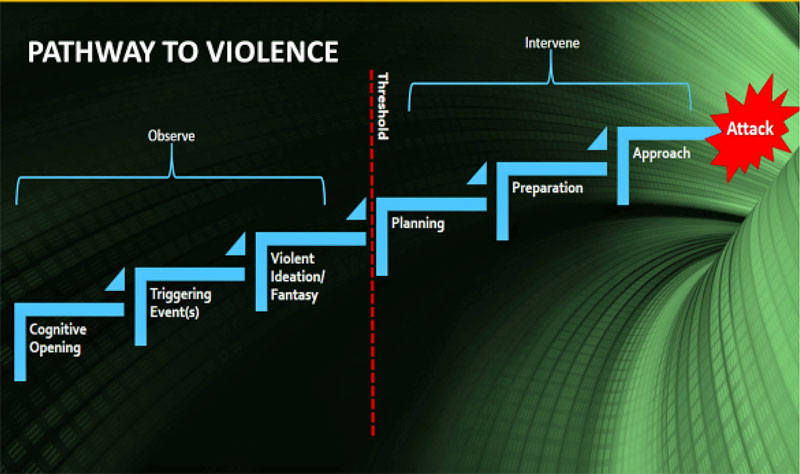
The historical reliance on calling 9-1-1 and waiting for first responders to arrive is no longer a viable singular option.
First responders (law enforcement, fire, EMTs) take, on average, 8 to 10 minutes to arrive to an active threat scene.
That 8 to 10 minutes is an eternity if you are in the pathway of an individual on a rampage.
Those crucial first minutes of the attack may well determine who survives and who does not.
Often, by the time the first responders arrive at the scene, the assailant will have already achieved his or her objective and either committed suicide, or staged for the final confrontation with law enforcement.
What this means is that the average citizen is now the initial responder; that survivability from a violent attack could depend on the preparedness, confidence and capabilities of one’s coworkers, employees, co-worshippers and or until that time, strangers in public venues who have consciously prepared for an event.
KGH Includes Focus on the Following:
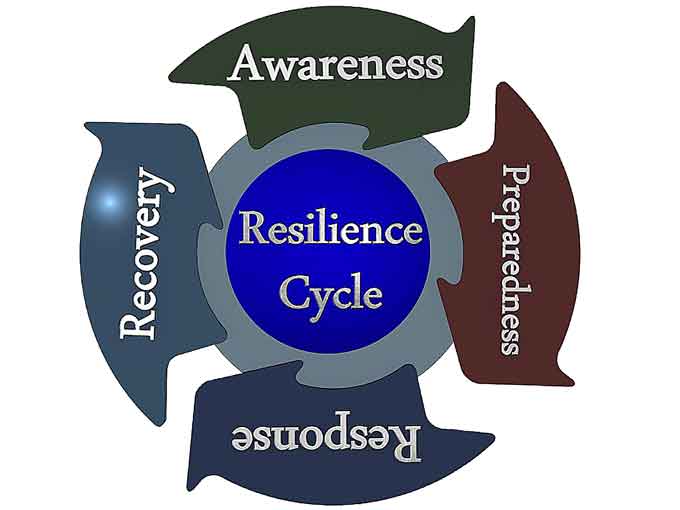
Awareness: The Ability to recognize potential threats before they happen, and see risk factors the may lead to a dangerous incident or violent attack.
Preparedness: Comprehensive planning and rehearsal for threats posed by fire, natural disasters, active shooters or other instances of danger or violence.
Response: A series of actions taken by organizations and individuals in response to an ongoing active threat with the intent of saving lives and ending the threat.
Recovery: Arange of actions post event including medical care, work environment changes, change in response planning, temporary relocation during restoration, and organizational and community support in the process of healing.
KGH is continually adding research to the PWP approach, such as their Minor Visions program which focuses on our youngest and most vulnerable segment of the population.
(Learn More about KGH’s Minor Visions Program, because Security Sense is Common Sense – and applicable to all ages. Courtesy of Kiernan Group Holdings (KGH) and YouTube.)
“These kids will carry the lessons learned in our training throughout their lives,” says Dr. Kiernan, “and capturing their worldview really ensures that the learning models are accurate.”
“We obviate the presumption that a singular training model suits all age levels and learning styles.”
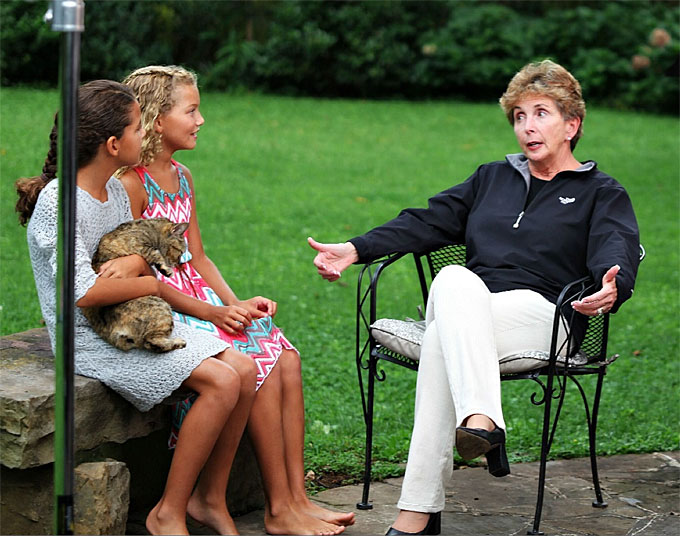
“We are educated by the kids who have already translated Preparedness Without Paranoia™ into “Be Prepared Not Scared” and as one young earnest learner very seriously informed me that “Clever Beats Strong” when we were discussing what the fight piece, of the national run, hide, fight model means to a ten-year old!”
“I think she is exactly right,” said Kiernan.
Preparedness Without Paranoia® Seminars are offered to organizations and corporations as on-location presentations, as well as via webinar and podcast. Working guides are also available for purchase.
Kiernan Group Holdings Takes Platinum at 2018 ‘ASTORS’ Homeland Security Awards at ISC East
-
Kiernan Group Holdings
- Platinum ‘ASTORS’ Award Winner
- Preparedness Without Paranoia
- Best Video Analytics Solution
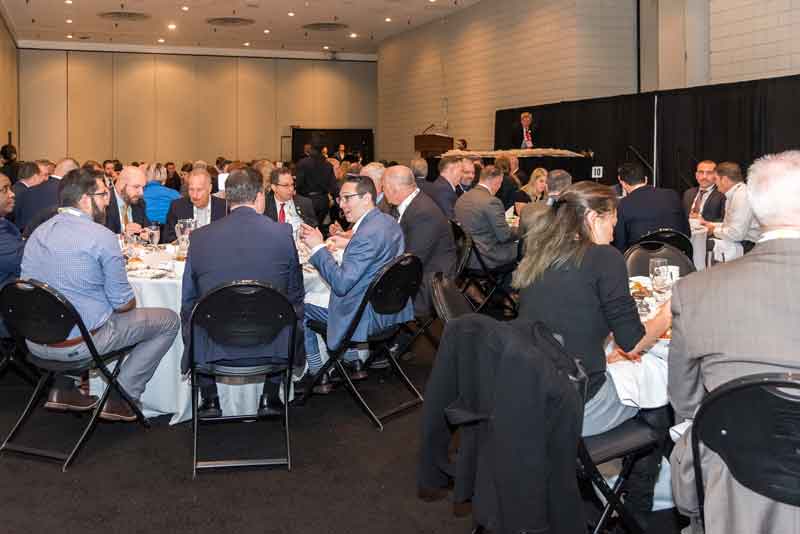
The 2018 ‘ASTORS’ Awards Program drew an overwhelming response from industry leaders with a record high number of corporate and government nominations received, as well as record breaking ‘ASTORS’ Presentation Luncheon Attendees, with top firms trying to register for the exclusive high – end luncheon and networking opportunity – right up to the event kickoff on Wednesday afternoon, at the ISC East registration!
Over 130 distinguished guests representing National, State and Local Governments, and Industry Leading Corporate Firms, gathered from across North America, Europe and the Middle East to be honored among their peers in their respective fields which included:
- The Department of Homeland Security Federal Protective Service (FPS)
- Argonne National Laboratory
- The Department of Homeland Security
- The Department of Justice
- The Security Exchange Commission Office of Personnel Management
- U.S. Customs and Border Protection
- Viasat, Hanwha Techwin, Lenel, Konica Minolta Business Solutions, Verint, Canon U.S.A., BriefCam, Pivot3, Milestone Systems, Allied Universal, Ameristar Perimeter Security and More!
The Annual ‘ASTORS’ Awards is the preeminent U.S. Homeland Security Awards Program highlighting the most cutting-edge and forward-thinking security solutions coming onto the market today, to ensure our readers have the information they need to stay ahead of the competition, and keep our Nation safe – one facility, street, and city at a time.
The program is specifically designed to honor distinguished government and vendor solutions that deliver enhanced value, benefit and intelligence to end users in a variety of government, homeland security, enterprise, and public safety vertical markets.
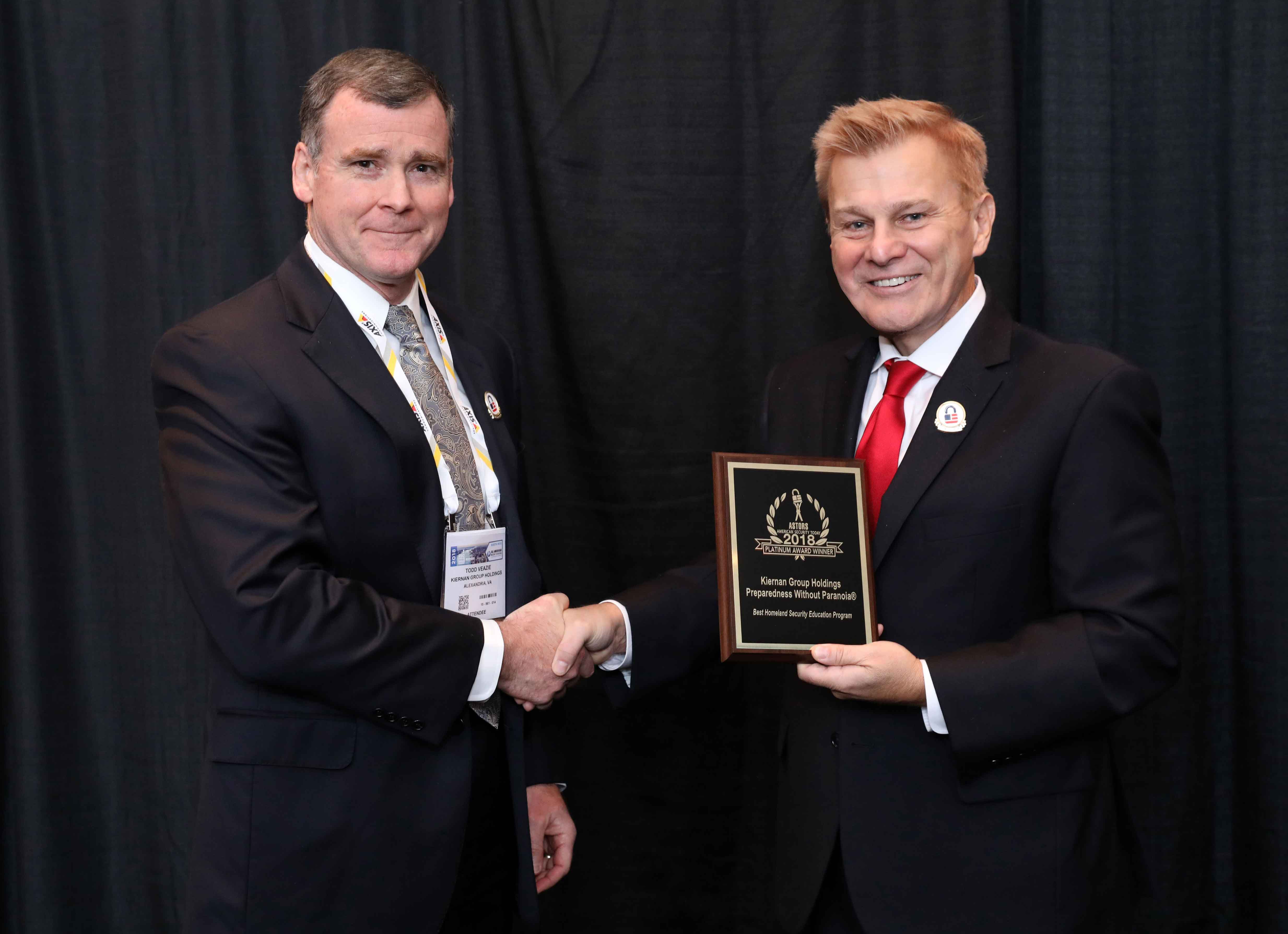
“As the nation continues to respond to escalating threats from home and abroad, the innovative solutions being implemented to meet those threats, has led to tremendous growth in the field of Homeland Security,” said Michael Madsen, co-founder and publisher of American Security.
“Today, the United States is increasingly focusing on empowering American citizens, corporations and government employees to learn to recognize telltale signs of an evolving threat, and become empowered to take effective action without hesitation, and they are calling on organizations like Kiernan Group Holdings to help them do so.”
The Annual ‘ASTORS’ Awards Program is specifically designed to honor distinguished government and vendor solutions that deliver enhanced value, benefit and intelligence to end users in a variety of government, homeland security and public safety vertical markets.

“‘ASTORS’ nominations are evaluated on their technical innovation, interoperability, specific impact within the category, overall impact to the industry, relatability to other industry technologies, and application feasibility outside of the industry,” according to Tammy Waitt, co-founder and editorial director of American Security Today.
 To inquire about Preparedness Without Paranoia® Seminars and other training series opportunities for your organization or company, please call: 571-290-0275 or email CPO@kiernan.co to reach the KGH Team
To inquire about Preparedness Without Paranoia® Seminars and other training series opportunities for your organization or company, please call: 571-290-0275 or email CPO@kiernan.co to reach the KGH Team
The 2018 ‘ASTORS’ Homeland Security Awards Program was Proudly Sponsored by ATI Systems, Attivo Networks, Automatic Systems, Desktop Alert, and Royal Holdings Technologies.
‘ASTORS’ Champions Edition – ‘Year in Review’
Be on the lookout for the upcoming 2018 American Security Today ‘ASTORS’ Champions Edition for in-depth coverage of the outstanding agencies and companies that received American Security Today’s 2018 ‘ASTORS’ Homeland Security Awards.
The ‘ASTORS’ Champion Edition is published annually in December and includes a review of programs and feature details on many of the winning firms.
Nominations for the AST 2019 ‘ASTORS’ Homeland Security Awards Program will officially open as of January 1st, 2019 at americansecuritytoday.com.
Enter Early to Maximize Media Coverage of your Products and Services at Kickoff, and Get the Recognition Your Organization Deserves!
Why the 2018 ‘ASTORS’ Homeland Security Awards Program?
American Security Today’s comprehensive Annual Homeland Security Awards Program is organized to recognize the most distinguished vendors of physical, IT, port security, law enforcement, and first responders, in acknowledgment of their outstanding efforts to ‘Keep our Nation Secure, One City at a Time.’
To Learn More about the ‘ASTORS’ Awards Program, Sponsorship Opportunities and More, please contact Michael Madsen, AST Publisher at: mmadsen@americansecuritytoday.com or call 732.233.8119 (mobile) or 646-450-6027 (office).
















